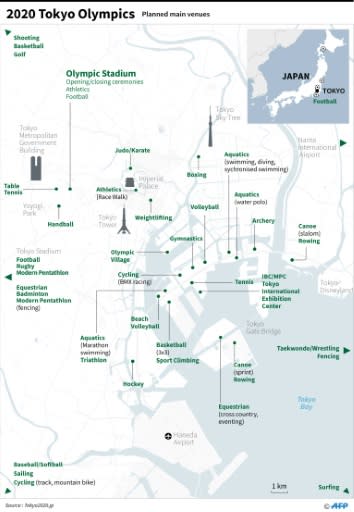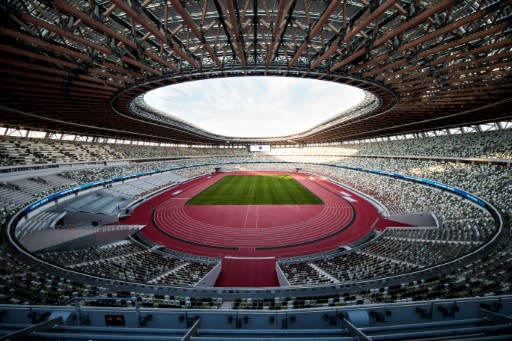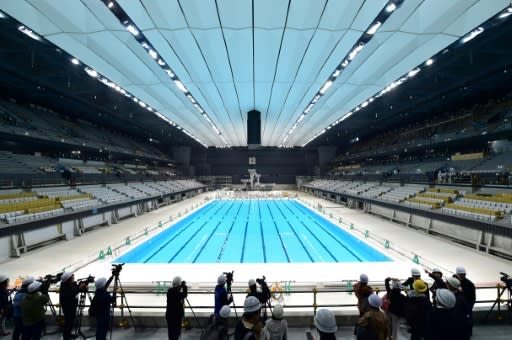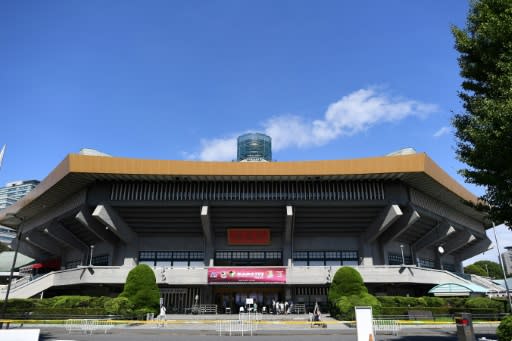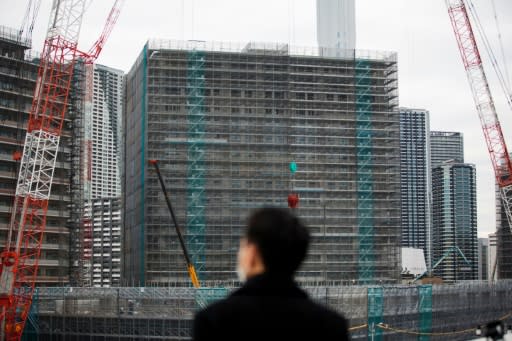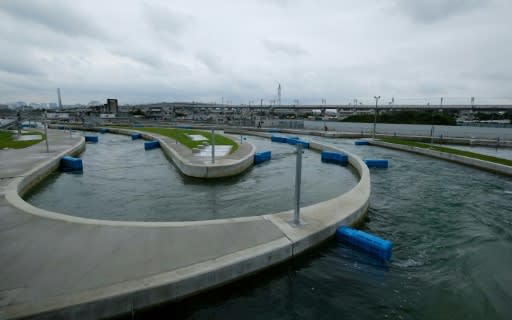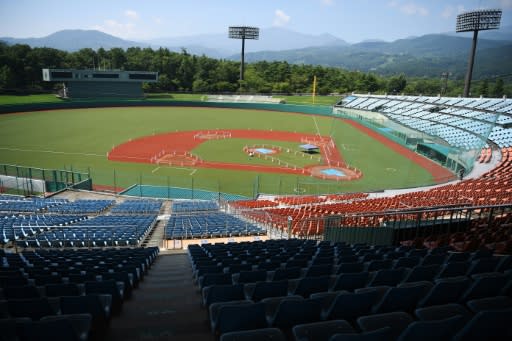Arenas of gold: Tokyo venues that will forge Olympic dreams
With six months until the Tokyo 2020 opening ceremony, workers are putting the finishing touches on the 43 Olympic sites that will be located in two main zones. The "Tokyo Bay Zone", dominated by the city's Rainbow Bridge and in the middle of Tokyo's busy port area, will see several new facilities constructed with views out to the ocean. The more central "Heritage Zone" will see several sites from the 1964 Tokyo Olympics reused, refitted or rebuilt. AFP Sport takes a tour of the key venues. - Olympic Stadium - Used for the opening and closing ceremonies, as well as the athletics and some football matches, the 68,000-seater Olympic Stadium in the centre of Tokyo has been built on the site of the 1964 stadium. The original design, by Iraqi-British architect Zaha Hadid, was jettisoned in July 2015 after public outrage over its $2 billion price tag -- which would have made it the world's most expensive stadium. A slimmed-down version was commissioned at half the price and the five-floor facility was unveiled in December, along with a host of special features to beat the expected heat of the Tokyo summer. Olympic sprint great Usain Bolt provided the star turn at the launch event, jogging round the track in a hybrid relay of athletes and parathletes. - Aquatics Centre - Construction on the $523 million venue for swimming, diving and artistic swimming is on schedule to be completed by the end of February. The Aquatics Centre in the Bay Zone will seat 15,000, which will be reduced to 5,000 after the Games when it will host competitions and be open to the public. The main pool features a movable wall allowing the 50m facility to be converted into two 25m pools. The depth of the bottom can also be adjusted. - Sea Forest Waterway - On a lush artificial island, in the shadow of the huge Tokyo Gate Bridge, sits the Sea Forest Waterway -- a two-kilometre basin protected from the sea by a dam, where rowers will glide along eight competition lanes. The arena will seat 24,000 during the Games, reduced to 2,000 afterwards when it will host 30 competitions per year as well as canoeing and rowing classes. - Ariake Arena - The brand-new Ariake Arena will host Olympic volleyball and Paralympic basketball, with seating for 15,000. Solar panels on its curved roof were carefully aligned to avoid reflecting sunlight into nearby apartments. The solar panels, heat sensors and geothermal pumps will reduce carbon dioxide emissions, as will the Aquatics Centre. The venue is earmarked for concerts and sporting events after 2020. - Nippon Budokan - The famous martial arts arena was first built for judo in 1964 and boasts a curved roof to resemble Mount Fuji. It will also host karate in 2020. It became a renowned concert venue after the 1964 Olympics and famously played host to the Beatles in 1966 when they made their first appearance in Japan. - Olympic Village - The Olympic Village is being built on reclaimed land on a huge rectangular site looking out over the water. It will have 21 towers stretching between 14 and 18 floors with a total capacity of 18,000 beds during the Olympics and 8,000 for the Paralympics. After the Games, the apartments will be available to buy or rent. - Kasai Canoe Slalom Centre - The first artificial canoe slalom course in Japan has vast concrete basins that slope at a two-degree gradient. Four pumps will be installed and blocks placed on the course to create a raging current. The site is intended for a wide range of watersports and leisure activities after the Games. - Fukushima Azuma Baseball Stadium- Japanese authorities have dubbed Tokyo 2020 the "Reconstruction Olympics" and they are determined to show that areas in eastern Fukushima have been revitalised since the crippling 2011 earthquake, tsunami and nuclear meltdown. The venue will be used for baseball, one of Japan's most popular sports, and softball. Construction is in full flow for the Tokyo 2020 Olympics The 2020 Olympic sites in Tokyo The Tokyo 2020 Olympic Games stadium was opened in December The Olympic-sized 50m pool has a design which can convert it into two 25m pools and change its depth for future events The Sea Forest Waterway sits in the shadow of the huge Tokyo Gate Bridge The Ariake Arena will host the volleyball at the Olympics and wheelchair basketball in the Paralympic Games The Nippon Budokan will play host to judo and karate The Olympic Village can accommodate 18,000 athletes and officials The Kasai Canoe Slalom Centre Fukushima Azuma Baseball Stadium, venue


